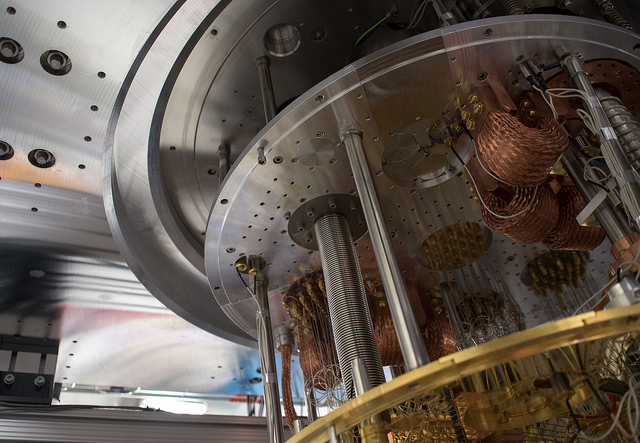 EMERGING TECH
EMERGING TECH
 EMERGING TECH
EMERGING TECH
 EMERGING TECH
EMERGING TECH
IBM Corp. has claimed a major new breakthrough in its quantum computing efforts.
The company said it has created a new approach to simulating molecules using a quantum computer that could have a transformative effect on materials science and chemistry and enhance our understanding of complex chemical reactions. IBM said the breakthrough could lead to new practical applications such as the development of personalized drugs, the creation of new materials, and the discovery of more efficient, sustainable energy sources.
Quantum computers have enormous potential because they’re infinitely more powerful than traditional computers. Quantum computers are superior because they rely on quantum bits, or qubits, which can be represented as a one or a zero or both. This is in contrast to conventional bits, which can only be a one or a zero.
With Qubits, machines can carry out millions of computations simultaneously, meaning quantum computers are ideal for certain kinds of tasks that require intensive processing. IBM has been researching quantum computers for years, but has only recently begun building viable machines.
Now, IBM’s research team said, it has created an algorithm that runs on a seven-qubit quantum processor to measure the lowest state of a chemical called Beryllium hydride (BeH2), which is a key measurement for scientists to understand chemical reactions. IBM says this is the largest molecule ever simulated on a quantum computer. This model can also be simulated with regular computers, IBM said, but the quantum approach can be also be scaled to study larger molecules that traditional computers can’t cope with.
“Thanks to Nobel laureate Richard Feynman, if the public knows one thing about quantum, it knows that nature is quantum mechanical,” Dario Gil, vice president of AI research and IBM Q at IBM Research, said in a statement. “This is what our latest research is proving — we have the potential to use quantum computers to boost our knowledge of natural phenomena in the world. Over the next few years, we anticipate IBM Q systems’ capabilities to surpass what today’s conventional computers can do and start becoming a tool for experts in areas such as chemistry, biology, health care, and materials science.”
The research is an important achievement, but more progress needs to be made before quantum computing will become useful for practical purposes, said one expert.
Alan Aspuru-Guzik, a professor of chemistry at Harvard University who was not part of the IBM research, said that IBM has carried out an impressive series of experiments, but needs to refine its work in correcting quantum computer’s calculation errors.
“When quantum computers are able to carry out chemical simulations in a numerically exact way, most likely when we have error correction in place and a large number of logical qubits, the field will be disrupted,” he said in a statement. “Exact predictions will result in molecular design that does not need calibration with experiment. This may lead to the discovery of new small-molecule drugs or organic materials.”
Chemistry research is just one industry where quantum computing could make a difference. Other potential uses include advancing areas of research around artificial intelligence and machine learning, which rely on highly optimized algorithms. Earlier this year, IBM’s research team demonstrated the advantages of running certain kinds of machine learning algorithms on quantum machines.
Looking ahead to the future, IBM believes that quantum computers will be used alongside traditional computers to tackle most problems. Easier parts of a problem could be handled by classical machines, with the more challenging calculations handled by quantum processors. IBM believes that in this way it will be easier for businesses and industries to adapt to quantum computing.
IBM’s full findings are presented in the journal Nature, which has a paywall, but they’re also available on the Arxiv website.
THANK YOU